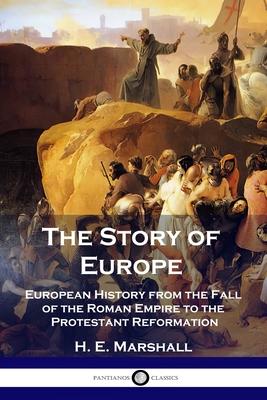This history of Europe begins with the fall of the Roman Empire, describes the gradual unifying of Europe's Medieval-era powers, and concludes with the Reformation and the Renaissance.
Each chapter summarizes the achievements and mistakes of a given ruler or series of rulers, or describes sudden arrivals to the theatre of European politics. The first meaningful attempt at unity was through Charlemagne of the Franks, whose efforts served to unite disparate tribes and peoples across swathes of the continent under one banner. However the road to eventual stability was long and fraught with setbacks; weak monarchs, the ongoing decay of the Roman roads, and regional skirmishes made the establishment of strong European monarchies a goal that took centuries to consummate.
Europe also sustained full-scale invasions, with the Moorish conquerors of Spain, and the Vikings of Scandinavia, described as ambitious and ferocious. Yet their intentions changed over generations from a raiding and warring mentality to one of permanent settlement and burgeoning trade. The Renaissance period had its share of crises, chief among them the Reformation; the formal split of Christians from the Catholic church set off a series of fractious religious conflicts spanning close to a century.
